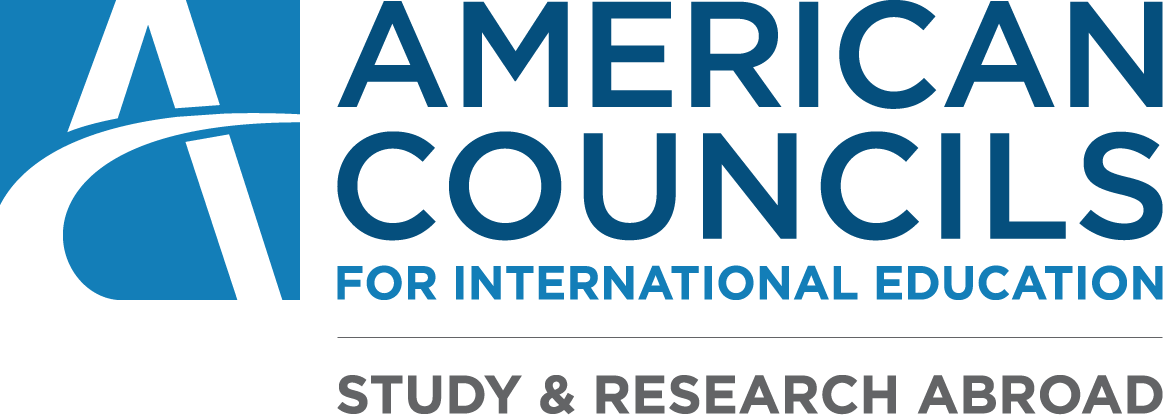Like Mother, Like Son
The Spawn Family (and Pup!). Kyle and Carla pictured on the right.
When Kyle Spawn decided to study abroad in Moscow in 2018, he already knew a thing or two about living in Russia. He played with Russian alphabet blocks as a child. The family dog could sit and stay if asked in English or Russian. His mom even made a few Russian meals for him and his brother.
Her family is Dutch, but Carla Spawn made an effort to share Russia with her children as well. Nearly 40 years before her son studied in Russia, she had studied abroad there too -- and on the same program. The name of the program changed over the years, as did some of the details, but two weeks before Kyle departed, they made the connection and realized that he was truly following in her footsteps.
While her incorporations of Russian culture and language were subtle, her belief in the value of study abroad experience is not.
“Going abroad reasonably independently as a young adult I just think is so valuable,” she said. “That’s why we’ve encouraged our sons…In terms of understanding your place in the world and gaining independence and self-sufficiency and problem solving, I think that is so essential and I just wish everybody could get that opportunity.”
When he started the sixth grade, Kyle had to choose between taking a French, Spanish or Russian language class. His decision came easy with his family’s language-learning legacy. (His brother had also studied Russian.) Kyle’s curiosity about Russian language and culture lingered long after that first course. When he first went abroad in high school to St. Petersburg, it was no longer just a decision that made sense, but a decision that he was passionate about.
Carla’s and Kyle’s student IDs from Russia
“I really started getting interested in the language and culture late in high school, when I took a school trip to St. Petersburg for two weeks,” he said. “It was my first immersion experience, and I knew I wanted to go back to learn more later.”
So in 2018, Kyle spent eight more weeks in Moscow on the Advanced Russian Language and Area Studies Program (RLASP), where things felt familiar to him.
“We took a bus from the airport to the dorm, and along the ride I recognized a couple things either from my previous trips or even things I’d seen in textbooks or movies,” he said.
But, despite this familiarity, a lot was different about the experience, especially since this was a longer trip.
“Things like taking the metro every day for an hour just to get to class, having far less homework to do, and having a closer relationship with professors felt really different,” he said. “I hadn’t experienced these things on previous trips, and I definitely hadn’t experienced them in America.”
The feeling of familiarity wasn’t just from textbooks and movies though – Kyle was retracing his mother’s steps from 37 years earlier. Carla heard about his excursion stories and compared his experiences and hers. She heard him talk about visiting a Cold War museum and wondered why she hadn’t visited while she was there – she was an international relations major after all. Then she realized that it wouldn’t have existed when she was there and that the country she had studied in technically no longer existed. There were also differences in visiting different cities, studying in the Soviet Union and Russia, and host family versus dorm options.
But, there were also things that stayed the same. Kyle and his mom both found that in their experiences, Russians seemed to be more apt to push through inconveniences, rather than point them out or complain. Carla recalled that passengers on the buses would simply power through the exhausting realities of work and commutes. Kyle described another modern example.
“You find air conditioning everywhere in America; discomfort is seen as a problem that needs fixing,” he said. “In Russia, even during the hot summer, you really can’t find air conditioning unless you’re in a mall. My host father even joked about how, in summer, you have to drink hot tea with a towel to wipe off the sweat from your face.”
Carla's Russian isn't as strong as it once was -- she says she was never a particularly strong language student, but her belief in experience gained from study abroad has never wavered. She's thrilled that her son has taken on the family legacy of study abroad.
“It was a really important experience in my young adulthood and it was really cool when Kyle started applying and ended up choosing to go with RLASP,” she said. “We were pretty sure it was the same program or a cousin of the program, which was kind of a nice full circle.”
About the author
Alexandra Stepanov was a spring intern at American Councils for International Education, whose work included supporting the processes of the Advanced Russian Language and Area Studies Program. While she has not traveled to Russia, she is a master’s student of international higher education and is passionate about all aspects of international education. Her experiences abroad include volunteering and studying in Italy, Spain, and Vietnam.


